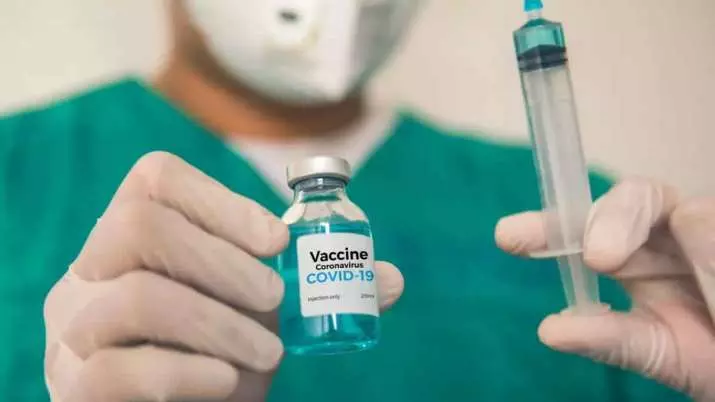Thrombosis With Thrombocytopenia Syndrome Covishield Side Effect Explained

Recent admission by AstraZeneca that its Covid vaccines Covishield and Vaxzevria might in very rare instances cause Thrombosis with Thrombocytopenia Syndrome has set the panic waves in the the people who were administered Covishield.
Sources aware of the development claimed that admission was made in the papers submitted to the High Court in London in February this year for a group action being moved by 51 claimants who experienced adverse events.
The legal documents state that , "It is admitted that AZ vaccine can, in very rare cases, cause TTS. The causal mechanism is not known. Further, TTS can also occur in the absence of the AZ vaccine or any other vaccine. Causation in any individual case will be a matter of expert evidence."
According to healthcare experts vaccine induced Thrombosis with Thrombocytopenia Syndrome (TTS) is an extreme immunological reaction that occurs after Covid 19 vaccination. Initially, it was thought to have been associated with viral vector based vaccines like J&J and AstraZeneca-Oxford, it was discovered that the side effects may also be observed with Covishield vaccine. The immunological reaction in TTS causes activation of platelets and the coagulation system which can result in venous or arterial thrombosis and in select cases can cause secondary haemorrhage.
As the news of this rare side effect broke out on April 30th 2024, it sent the world in a tizzy, especially in those parts where Covishield was administered to people. And while on 1st May 2024, AstraZeneca has reaffirmed the safety of its Covid vaccine, it would do us well to understand how TTS impacts the afflicted person physiologically, how does one detect/diagnose it and what can be done to treat it.
What is Thrombosis with Thrombocytopenia Syndrome (TTS)?
It is a very rare syndrome which occurs when an individual develops blood clots along with a low platelet count. Thrombosis refers to blood clot formation. It can reduce the normal flow of blood in the afflicted blood vessel.
Thrombocytopenia refers to the condition which results in low platelets in the blood of the afflicted individual. Since the platelets help the formation of blood clots which help stop bleeding, low platelets result in delayed blood clotting leading to excess loss of blood in case of an injury.
What are the complications caused by TTS?
The primary complication of TTS is formation of blood clots that could occur in multiple location in the body and impact the normal blood flow to that body part. Depending on where the blood clots are formed in the afflicted person's body we can classify the TTS complications as follows:
The Brain - (Cerebral Venous Sinus Thrombosis or CVST)
The Abdomen - (Splanchnic Vein Thrombosis or SVT)
The Lungs - (Pulmonary Embolism)
Limb Veins - (Deep Vein Thrombosis or DVT)
Arteries - (Arterial Thrombosis)
What are the symptoms of TTS?
TTS Symptoms are the following:
When brain is affected - Severe headache which persists; blurred vision; difficulty in speaking; feeling drowsy; undergoing seizures attacks and experiencing bouts of confusion.
When rest of the body is affected - difficulty in breathing; chest pain; swelling in legs; persistent stomach pain and minute spots of blood under the skin.
As per the sources, the symptoms developed between 4th to 42nd day after AstraZeneca Covid vaccine was administered.
What are the risk factors for TTS?
There is no medical condition which can be directly linked to an individuals risk of developing TTS post vaccination.
However, there seems to be some correlation between the age bracket and the risk of TTS. The risk of TTS appears to have been slightly higher in people less than 60 years of age and young women usually experience a more severe form of TTS. The risk of TTS is also lower in individuals who were administered second dose of the vaccine as compared to individuals who have taken only first dose of Covishield.
How can TTS be diagnosed and treated?
TTS can be diagnosed with blood tests and scans including CT scans.
Treatment for TTS includes -
Anti-clotting (anticoagulant) medicines
IVIG (Intravenous immunoglobulin) which involves infusion of blood product containing antibodies
High dose Prednisone which is a type of steroid medicine
Disclaimer: The above information is based on healthcare professionals opinion and available scientific literature in public domain. It is only for the purpose of public education and awareness only.

